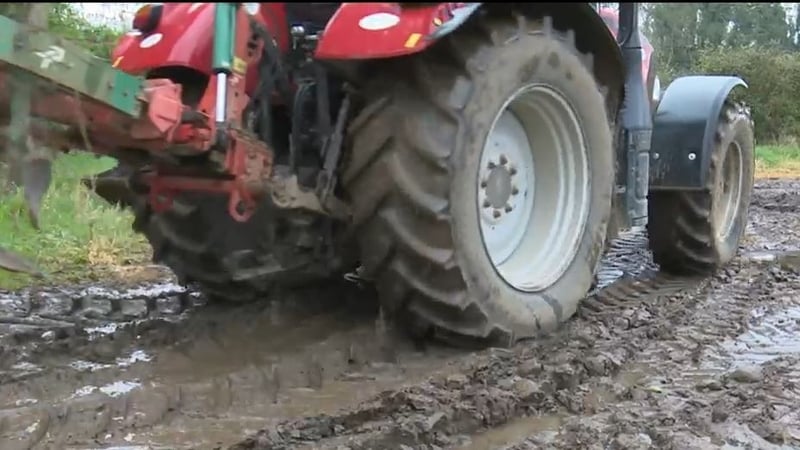Desperate farmers wrote to Agriculture Minister, Charlie McConalogue, about being left in severe financial hardship because above-average rainfall had left their land damp and sometimes inaccessible.
The department received representations from stricken farmers and industry organisations with one writing about one landowner who "cannot get access to [his] fields due to the very poor weather".
An email said: "He has not even had the fields prepared for this year's crop … he has found himself to be in a very poor financial state.
"The crop is destroyed. He is seeking compensation or assistance from the department for the loss he has endured."
One farmer sent a handwritten letter to Minister McConalogue of how they had to go to the bank to restructure their loans as they struggled with bad weather and EU rules around nitrates.
On contacting one farmer’s representative group, it was suggested it might be advisable to take up a part-time job driving a van.
Their letter said: "I was actually shocked to be advised to do that as I take great pride in my farm and love to farm.
"I don’t know Minister if my letter will actually get into your hands to read of my stress and concerns but if I am lucky enough that it does, I’m asking you to please help the smallest farms in Ireland."
Another letter explained how by late March, more than 650 acres of potato crop remained unharvested and that others had been forced into 'salvage operations’ on their land."
Since sharp frost conditions were experienced last month, when drills were waterlogged and the plants sat exposed, it is likely that approximately 50% of this acreage is unsaleable," said the correspondence.
One message on behalf of grain growers said extreme rainfall last year had caused a "profound impact" on winter crops.
Their letter said: "Regrettably, some crops have completely failed or died out, while others are sparse with a very low plant count.
"It warned that the amount of land available for tillage farming was decreasing every year because profitability was "dwindling" and called for extra supports for farmers.
Farmers in Co Wexford wrote about being left in a "very vulnerable position", hit by weather events and global war.
An email said: "It does not take a maths genius to work out the figures, when you add in fuel, labour, sprays, and running cost of machinery, that you’re going to lose money before you start sowing [crops]."
A spokesman for the Department of Agriculture said that Minister McConalogue was acutely aware of how challenging this year had been for farmers because of prolonged and exceptional wet weather conditions.
They said he had temporarily paused non-essential farm inspections in April, reconvened the National Fodder and Feed Security Committee, and asked Teagasc to look at how supports could be provided.
The spokesman said a Fodder Transport Measure had also been announced to help the worst-affected livestock farmers.
He said: "This measure provided a financial contribution towards the cost of transporting fodder between those areas where [it] was plentiful and those where it was scarce."
"[The minister also] announced last month that he would work to deliver a €100 per hectare payment for every farmer that plants crops for this harvest year."
- reporting Ken Foxe
